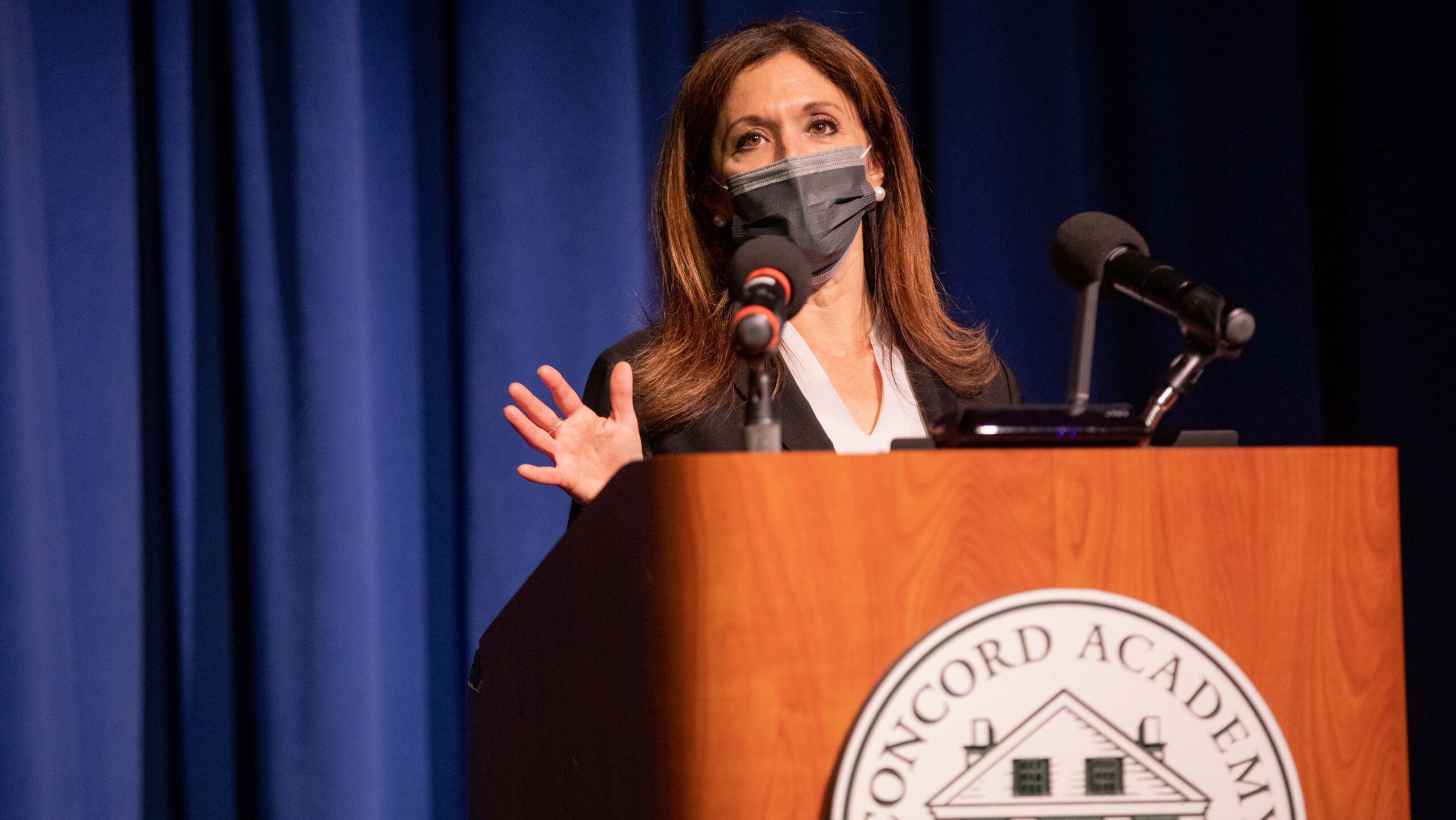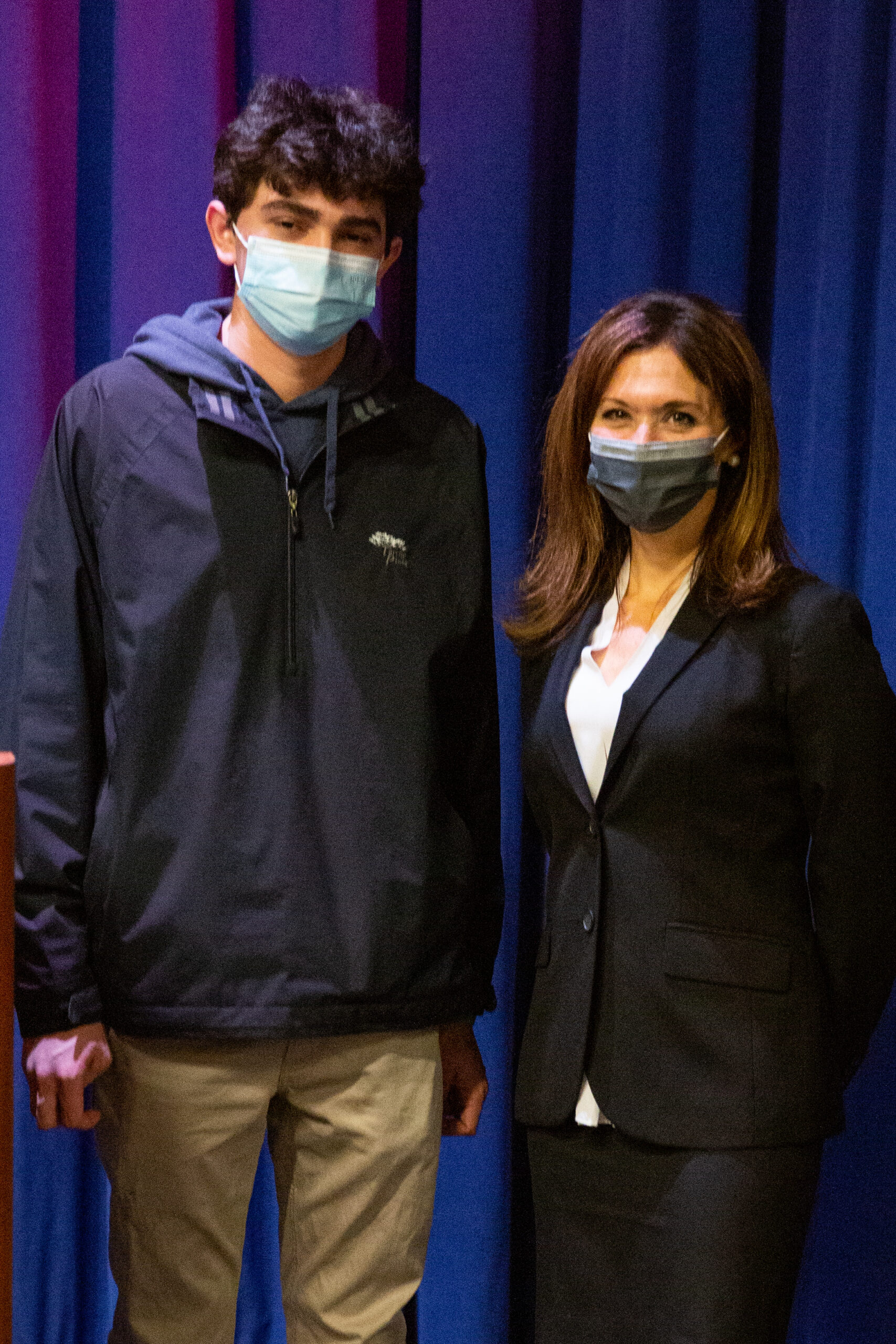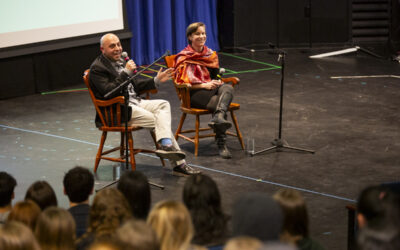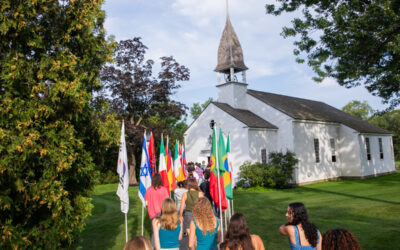
“I am standing here today because of three reasons,” Ben Fleishman ’23 said to his peers and teachers in Concord Academy’s Performing Arts Center on February 2. “The first being the miracles of modern medicine, the second is because of a tragedy, and the third is because of the incredible thoughtfulness and generosity from an individual I never knew and will never meet.” A liver transplant recipient, Ben was hosting an all-school assembly about the importance of organ donation with Alexandra Glazier ’89, P’20 ’22, president and CEO of New England Donor Services.
“It is really a remarkable part of our healthcare system,” Glazier said at the assembly’s start. “You can’t have organ transplants without organ donation.” Before Ben shared his personal story, Glazier posed questions to students who answered a poll on their phones. She first asked for their opinions on organ donation. While the majority responded that organ donation “is generally a positive thing,” some replied that they had concerns. Glazier hoped that by the end of the assembly, she could convince those who had doubts of the profound impact organ donation can have.
Despite the large number of registered organ donors—167 million people in the United States—there is still a sizable gap between the need for transplants and the availability of organs. Each day, an average of 18 people die in the U.S. waiting for a transplant, Glazier said. She explained that only 2% of patients who die in hospitals have organs eligible for donation. In the presence of any transmissible disease, a patient’s organs are not suitable for a procedure.
She went on to dispel a common myth about organ donation. Some individuals worry that if they register as organ donors, then they will not receive life-saving medical care in the case of an emergency. Glazier confirmed that this is not the case. Medical personnel do not identify organ donors while providing treatment; organ procurement organizations, such as New England Donor Services, are responsible for identifying organ donors after a patient has passed away. Glazier also addressed concerns about equitable allocation of organs.
“Organ donation is about human connection,” Glazier said. And detailing his personal experience with receiving an organ transplant, Ben testified to this truth. As an infant, he was diagnosed with biliary atresia, which causes blockage in the ducts that transport bile from the liver to the gallbladder. He underwent a successful surgery as a baby that kept him alive, but doctors informed his parents that eventually he would need to receive a liver transplant.
At age 11, Ben was placed on a waitlist. He said he considers himself lucky, as the medication he took and his overall good health allowed him to continue just “being a kid” in the meantime. In 2017, Ben was approved for a split liver transplant: Because of the organ shortage and the liver’s ability to regenerate, surgeons can help two patients with one liver donation. Ben received half of a liver in a successful surgery and experienced a smooth recovery. (To name a CA connection, his surgeon was Dr. Heung Bae Kim P’18, director of the Pediatric Transplant Center at Boston Children’s Hospital, and a member of New England Donor Services board of trustees.)

Ben said he is incredibly grateful to the person whose liver he received. “The sad reality is that I have the liver that is inside my body because someone died,” he acknowledged. “And because I received a strong and healthy liver, odds are it was a younger person of otherwise good health.” Ben’s gratitude for this anonymous organ donor’s generosity has inspired him to raise awareness around organ donation and the incredible results these transplants have for recipients and their loved ones.
Both he and Glazier encouraged everyone to register as an organ donor, either through the RMV or Donate Life New England, and to talk to their friends and families about doing the same. The process for signing up as an organ donor is straightforward. Ben reminded the CA community, “Something as simple as this can have a dramatic and far-reaching impact.”


